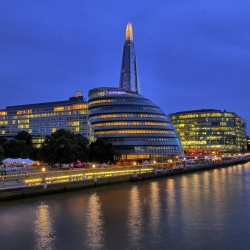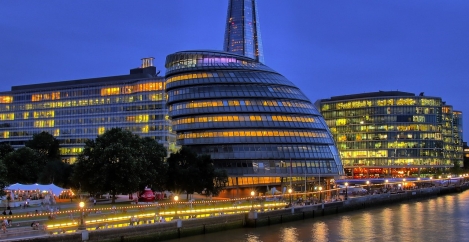February 7, 2024
London must take better decisions on whether to retrofit its buildings
 The London Assembly Planning and Regeneration Committee has published a new report called Retrofit vs Rebuild? which asks how decisions are made to either retrofit or rebuild properties and the carbon implications for both. In London, buildings account for an estimated 68 per cent of the city’s carbon emissions. These emissions arise from the construction, operation, and demolition of buildings. The report claims that, if London is to meet the Mayor’s 2030 net zero target, there is an urgent need to reduce emissions from buildings and to retrofit both housing and commercial stock.
The London Assembly Planning and Regeneration Committee has published a new report called Retrofit vs Rebuild? which asks how decisions are made to either retrofit or rebuild properties and the carbon implications for both. In London, buildings account for an estimated 68 per cent of the city’s carbon emissions. These emissions arise from the construction, operation, and demolition of buildings. The report claims that, if London is to meet the Mayor’s 2030 net zero target, there is an urgent need to reduce emissions from buildings and to retrofit both housing and commercial stock.
The Committee carried out a two-part investigation into London’s built environment to produce the report. It claims that, whilst operational carbon emissions (the energy used to run buildings, heating and cooling systems) are regulated through building regulations, embodied carbon is treated differently, and the building industry is not currently required nationally to measure and reduce the embodied carbon arising from construction.
Whole Life-Cycle Carbon (WLC) Assessments are a way of measuring all the emissions arising during the entire lifecycle of a building, from its construction to its potential demolition or change of use. The London Plan 2021 set a policy requirement for developers to carry out WLC Assessments for major developments, to be submitted during planning stages.
The report offers six recommendations for the Mayor and Government, including:
- The Government should introduce a mandatory requirement in national policy to undertake WLC Assessments for buildings, looking at the policy on minimising greenhouse gas emissions set out in the London Plan’s Sustainable Infrastructure Policy 2 Part F as a potential model.
- The Mayor should publish annual data gathered from WLC Assessments to enable the success of the policy to be tracked, and to identify improvements needed. The GLA should analyse the data and provide an estimate of the amount of embodied carbon emissions associated with London developments, broken down by type.
- The Government and the Mayor should assemble a working group to identify the support that local authorities need, in terms of their skills and capacity, to promote whole life carbon and circular economy approaches; and how this support could be obtained.
Sakina Sheikh AM, Chair of the London Assembly Planning and Regeneration Committee, said: “The UK must take serious action to meet the challenge of climate change. With 68% of London’s carbon emissions coming from its buildings, it’s clear that planning policy can be the key to unlocking climate action. Whole Life Carbon assessments would provide essential support for developers and planning authorities to reduce carbon in how they construct.
“Retrofitting existing buildings and homes can make people warmer and lessen the impact on their energy bills. The Government can make retrofitting more financially viable by heeding the calls from industry to reduce the VAT builders currently have to pay to retrofit.
“The Committee believe that the cross-party recommendations in this report can help London build the homes we need whilst meeting our aspiration of reaching net zero by 2030. The Government and Mayor must work together to achieve this.”













